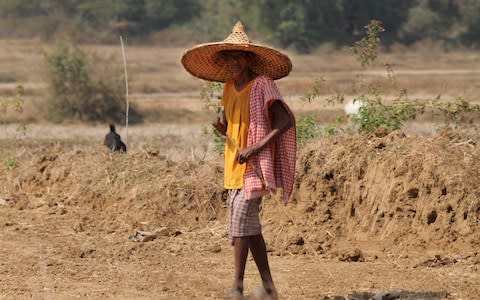Indian Supreme Court orders eviction of 1 million tribal forest dwellers

India’s Supreme Court has ordered the eviction of over 1.1 million tribal and other traditional forest dwellers, after it recently rejected their ancient ownership claims on jungle land.
Experts estimate that the 20 February legal fiat could result in some 8 million tribal people, including women and children, leaving forest areas spread across 17 Indian states which their ancestors had inhabited for centuries.
The evictions, which are to be executed under official and police supervision, have to completed by 27 July, the date of the next court hearing in the case.
“The judgement is a death sentence for millions of tribal people in India,” said Stephen Corry head of Survival International, the London-based human rights organisation that campaigns for the rights of indigenous peoples.
“It’s land theft on an epic scale and a monumental injustice” he declared, adding that it would trigger an ‘urgent humanitarian crisis’ and do nothing to save the forests which the tribes people have protected for generations.
Other activists fear that such a large-scale eviction could generate social unrest in several states like Madhya Pradesh in central India, Orissa in the east and Karnataka in the south, all with large numbers of tribal people.
The court order followed over 10-years of legal wrangling and came in response to a petition filed by wildlife and nature preservations groups.
These groups had questioned the Traditional Forest Dwellers Act, 2006, that recognises the rights of ancient tribal communities to live in and manage the jungles.

The petitioners asserted that many of them were encroaching on the country’s diminishing forest spread across 500 wildlife sanctuaries and 90 national parks.
They also claimed the the tribes-people were endangering India’s wildlife.
Pro-tribal activists, however, argued that the Act had been adopted to protect the age-old rights of tribal peoples from encroachments on their jungle habitats by commercially minded realtors and state governments.
Tribal activists and lawyers declared that the court eviction order had been facilitated by the weak defence offered by government lawyers.
They also said that the entire process of filing ownership claims by the tribes was flawed, as for most illiterate jungle dwellers the process of legitimising an abstract notion like forest rights, was daunting.
Besides, the procedure required each tribe to provide 13 different kinds of proof to verify their claims, a requirement difficult even for most educated Indians.
According to historian and human rights activist Ramchandra Guha, India’s tribal populations had, over decades, lost their homes to dams, mines and factories.
And now a Supreme Court-mandated eviction from their forests had once again proved how “totally vulnerable” these ancient jungle people remain.

 Yahoo News
Yahoo News 
